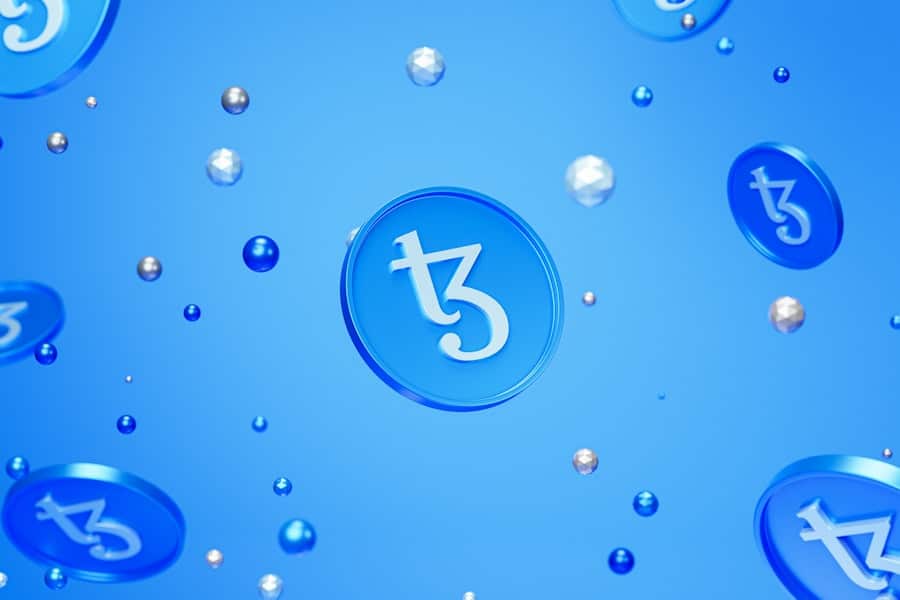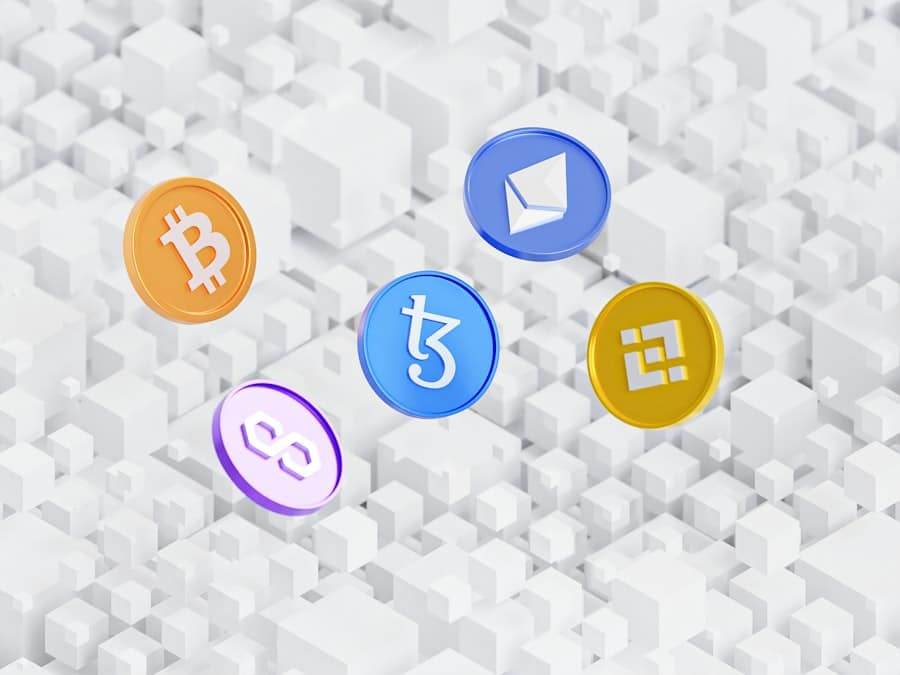Tokenized securities represent a significant evolution in the financial landscape, merging traditional asset classes with cutting-edge technology. At their core, tokenized securities are digital representations of ownership in real-world assets, such as stocks, bonds, real estate, or even art, that are recorded on a blockchain. This process involves converting the rights associated with an asset into a digital token, which can then be traded on various platforms.
The underlying technology ensures that each token is secure, transparent, and immutable, providing a new level of trust and efficiency in transactions. The concept of tokenization is not merely a technological innovation; it also redefines how we perceive ownership and investment. By breaking down assets into smaller, more manageable units, tokenization allows for fractional ownership.
This means that investors can purchase a fraction of an asset rather than needing to buy the entire asset outright. For instance, instead of needing to invest in a whole piece of real estate, an investor could buy a token representing a small percentage of that property. This democratization of investment opportunities opens doors for a broader range of investors who may have previously been excluded from certain markets due to high entry costs.
Key Takeaways
- Tokenized securities are digital representations of traditional securities, such as stocks or bonds, using blockchain technology.
- The advantages of tokenized securities include increased liquidity, fractional ownership, and reduced settlement times.
- Tokenized securities are changing stock trading by making it more accessible, efficient, and cost-effective for investors.
- Traditional stock exchanges are being impacted by tokenized securities as they face competition and the need to adapt to the new technology.
- Blockchain technology plays a crucial role in tokenized securities by providing transparency, security, and efficiency in the trading process.
- Regulatory challenges and opportunities exist in the tokenized securities market, as regulators work to balance investor protection with innovation.
- The future of tokenized securities in the stock market looks promising, with potential for increased market participation and new investment opportunities.
- Investing in tokenized securities comes with risks such as regulatory uncertainty and market volatility, but also offers rewards such as diversification and access to new asset classes.
The Advantages of Tokenized Securities
Liquidity and Market Access
Traditional assets often suffer from illiquidity, making it difficult for investors to quickly buy or sell their holdings without significant price impacts. In contrast, tokenized securities can be traded on various digital platforms 24/7, allowing for instant transactions and greater market access. This increased liquidity can lead to more efficient price discovery and attract a wider array of investors looking for quick entry and exit points.
Transparency and Security
Tokenized securities enhance transparency and security in transactions. Each transaction involving a tokenized security is recorded on a blockchain, creating an immutable ledger that can be audited at any time. This transparency reduces the risk of fraud and enhances trust among investors.
Automation and Efficiency
The use of smart contracts—self-executing contracts with the terms of the agreement directly written into code—automates many processes involved in trading and managing securities. This automation not only reduces operational costs but also minimizes human error, further enhancing the reliability of transactions.
How Tokenized Securities Are Changing Stock Trading

The advent of tokenized securities is revolutionizing stock trading by introducing new trading models and platforms that challenge traditional brokerage systems. With the ability to trade fractional shares of stocks through tokenization, investors can diversify their portfolios more effectively without needing substantial capital. This shift allows retail investors to access high-value assets that were previously out of reach, such as shares in blue-chip companies or luxury real estate.
Furthermore, the integration of tokenized securities into trading platforms has led to the emergence of decentralized finance (DeFi) applications that facilitate peer-to-peer trading without intermediaries. These platforms leverage blockchain technology to create a more direct connection between buyers and sellers, reducing transaction fees and increasing efficiency. For example, platforms like Uniswap allow users to trade tokens directly with one another using automated market-making algorithms, bypassing traditional exchanges altogether.
The Impact of Tokenized Securities on Traditional Stock Exchanges
Traditional stock exchanges are facing significant challenges due to the rise of tokenized securities. As more investors gravitate towards digital assets and decentralized trading platforms, traditional exchanges must adapt to maintain their relevance in an evolving market landscape. The introduction of tokenized securities has prompted some exchanges to explore their own tokenization initiatives or partnerships with blockchain firms to offer tokenized products alongside traditional offerings.
Moreover, the competitive pressure from tokenized securities has led to increased scrutiny regarding fees and transaction times at traditional exchanges. Investors are increasingly demanding lower costs and faster execution times, which has forced exchanges to innovate and streamline their operations. Some exchanges are now implementing blockchain technology to enhance their settlement processes, aiming to reduce the time it takes for trades to clear and settle.
This evolution reflects a broader trend where traditional financial institutions must embrace technological advancements to remain competitive in a rapidly changing environment.
The Role of Blockchain Technology in Tokenized Securities
Blockchain technology serves as the backbone for tokenized securities, providing the infrastructure necessary for secure and efficient transactions. The decentralized nature of blockchain eliminates the need for intermediaries, allowing for direct peer-to-peer transactions that enhance speed and reduce costs. Each transaction is recorded on a distributed ledger that is accessible to all participants in the network, ensuring transparency and accountability.
Additionally, blockchain technology enables the creation of smart contracts that automate various aspects of trading and ownership transfer. These self-executing contracts can enforce compliance with regulatory requirements and facilitate automatic dividend payments or interest distributions based on predefined conditions. For instance, if an investor holds a tokenized share of a company that declares dividends, the smart contract can automatically distribute the appropriate amount to the investor’s digital wallet without any manual intervention.
This level of automation not only streamlines operations but also reduces the potential for disputes or errors in transaction processing.
Regulatory Challenges and Opportunities in Tokenized Securities

As tokenized securities gain traction in the financial markets, they also present unique regulatory challenges that must be addressed to ensure investor protection and market integrity. One significant challenge is the classification of tokenized assets under existing securities laws. Different jurisdictions may have varying definitions of what constitutes a security, leading to potential legal ambiguities for issuers and investors alike.
Regulatory bodies are grappling with how to apply existing frameworks to these new digital assets while fostering innovation. However, these challenges also present opportunities for regulators to create more tailored frameworks that accommodate the unique characteristics of tokenized securities. By engaging with industry stakeholders and leveraging insights from technological advancements, regulators can develop guidelines that promote responsible innovation while safeguarding investor interests.
For example, some jurisdictions have begun to establish regulatory sandboxes that allow companies to test their tokenized offerings in a controlled environment before full-scale launch. This approach encourages experimentation while ensuring compliance with necessary regulations.
The Future of Tokenized Securities in the Stock Market
The future of tokenized securities in the stock market appears promising as technological advancements continue to reshape investment landscapes. As more companies explore tokenization as a means to raise capital, we may witness an increase in initial coin offerings (ICOs) and security token offerings (STOs) as viable alternatives to traditional IPOs. This shift could democratize access to capital markets for startups and small businesses that may struggle to secure funding through conventional channels.
Moreover, as institutional investors begin to recognize the potential benefits of tokenized securities—such as enhanced liquidity and reduced operational costs—we may see greater adoption within this segment. Major financial institutions are already exploring blockchain technology for various applications, including custody solutions for digital assets.
Investing in Tokenized Securities: Risks and Rewards
Investing in tokenized securities presents both risks and rewards that potential investors must carefully consider before entering this emerging market. On one hand, the advantages of liquidity, fractional ownership, and transparency can make tokenized securities an attractive option for diversifying investment portfolios. The ability to trade assets 24/7 on various platforms provides flexibility that traditional markets cannot match.
However, there are inherent risks associated with investing in this nascent space. The regulatory landscape remains uncertain, with potential changes that could impact the viability of certain tokenized offerings. Additionally, the technology itself is still evolving; vulnerabilities in smart contracts or blockchain networks could expose investors to security risks or loss of funds.
Furthermore, market volatility can be pronounced in the realm of digital assets, leading to significant price fluctuations that may not align with traditional asset classes. In conclusion, while tokenized securities offer exciting opportunities for innovation and investment diversification, they also require careful consideration of associated risks. As this market continues to develop, investors must stay informed about regulatory changes and technological advancements to navigate this dynamic landscape effectively.
Tokenized securities are changing the landscape of stock trading, offering increased accessibility and efficiency for investors. In a related article,

